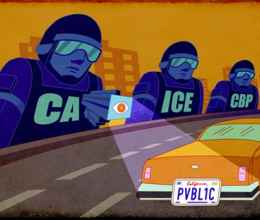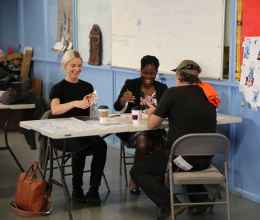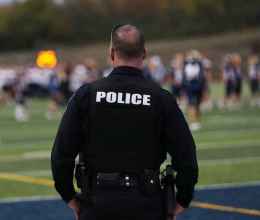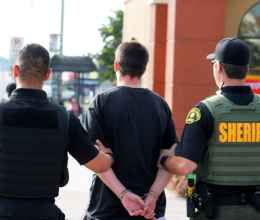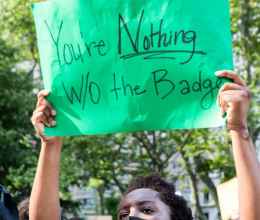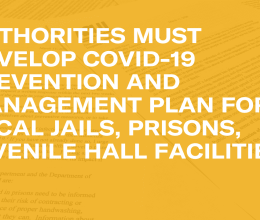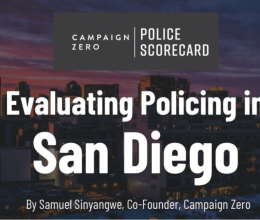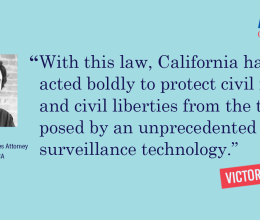San Diego, CA – Below is the written testimony presented by San Diego ACLU Executive Director Norma Chavez-Peterson to the Public Safety & Livable Neighborhoods Committee today, October 26, 2016. This testimony pertains to the SDSU analysis of 2014–1015 police traffic stop data that appears to confirm patterns of racial profiling. “The ACLU is not anti-police. We are pro-justice, pro-accountability, pro-transparency, and pro-community trust. We know there are many more good public servants in the ranks of our law enforcement agencies than bad. We also know there are policies, practices and bad apples that cause many Black, Asian American and Latino San Diegans to feel needlessly over-policed,” stated Chavez-Peterson, summarizing this written statement in her oral remarks.
Good afternoon, Council President Pro Tem Emerald and members of the committee.
Today’s conversation about SDSU’s analysis of SDPD traffic stop data is long overdue, and unfortunately the information we have been provided by the Mayor’s office leaves a lot of unanswered questions. Our first request is that the public be provided with specific information today regarding when the final report will be completed, and more importantly, when it will accessible for public review and comment.
When concerns are raised about racial bias in local policing, the response is often that San Diego is not Ferguson or Baltimore – meaning that there is no need to improve on police practices and relations in the region because massive numbers of people haven’t taken to the streets in protest. San Diego has not experienced civil unrest at the levels seen in other cities. Even so, there have been intimidating, brutal, and sometimes deadly encounters between law enforcement and people of color that leave some San Diegans feeling deeply distrustful and others feeling targeted and attacked.
Just last month, in our neighboring city of El Cajon, an unarmed Black man was tragically shot and killed by a police officer responding to a 911 call to help him. For many, the protest that followed was the wake-up call that our region is not immune to tension between law enforcement and people of color. This is something affected communities and the San Diego ACLU have been saying for many years. Over-policing is a serious problem that the ACLU has documented both anecdotally and factually.
The ACLU is not anti-police. We are pro-justice, pro-accountability, pro-transparency, and pro-community trust. We know there are many more good public servants in the ranks of our law enforcement agencies than bad. We also know there are policies, practices and bad apples that cause many Black, Asian American and Latino San Diegans to feel needlessly over-policed.
The SDSU slides shared by the Mayor’s office yesterday confirm that it’s more than a “feeling” that Black and Latino folks are targeted by the police – it’s true. The slides raised many questions, but also revealed some important and troubling facts:
- Black and Latino drivers were nearly twice as likely to be searched as White drivers, while Black drivers are 44 percent less likely to be found with contraband; and Latinos are 46% less likely to have contraband than whites.
- Black drivers were nearly 3 times as likely to have a field interview. It is important to note that this means that information about that driver is entered into police databases, like the problematic gang database. So, Black drivers are stopped at higher rates, searched at higher rates, and - even though they are less likely to have contraband, more Black drivers end up in police databases because Black drivers are subjected to field interviews at higher rates all other drivers.
- It appears that Black and Latino drivers are held to a different standard than White drivers when it comes to police searches. We expect the final report will shed light on why this is the case.
- We know that the officers are underreporting information regarding their traffic stops. This leads to the question of why departmental policy is not followed. It also raises serious questions about stops that were not recorded or reported because a citation was not issued. We are concerned that the police have far underreported the number of unjustified stops, and thus the actual number of traffic stops.
What we were able to learn from the slides is problematic and concerning, and we want to know what the department is going to do to address these problems. The San Diego ACLU has recommendations that I will share at the conclusion of my remarks. But, before we get there, I will like identify the information we believe should be provided in the full study when it is released- and to the extent possible, answered during today’s hearing:
- First, the analysis does not consider gender and age, despite the fact that the researchers possess this data. Examining the effects of race by “controlling” for these factors tells an incomplete story. It’s important to know what the data shows in relation to stops of Latino men and women, and Black men and women.
- Why is there a potential difference in racial bias in the citywide and northern division data in 2014 as compared to 2015?
- How often are drivers arrested for something other than contraband— like warrants, “resisting arrest,” and et cetera?
- What is the basis for finding there are no disparities between Latino and White drivers in 2014 and 2015; or no disparities between Black and White drivers in 2015? This is contrary to the bar graphs that clearly show that both groups are stopped at rates higher than their share of San Diego’s driving population.
- The City contract with SDSU states that community and police surveys are to be a part of the analysis. What are the results of those surveys? What is the demographic background of the survey participants, including race, gender, neighborhoods represented and age?
- More information is needed about where drivers are stopped . While specific neighborhood information may not be available, surely there is information about the division where the stopped occurred.
- Finally, no information or analysis was provided about why police initiated the traffic stops.
The San Diego ACLU urges this committee to explore answers to these questions today, and to ensure that answers to these questions are included in the final report.
One last thought about the final report: the information and analysis provided today was not presented in a way that is easily understood by the average person. We hope that the final report will not require a sociologist to interpret it, but that the data and its analysis will be presented clearly and concisely, and the conclusions will be straightforward, comprehensive and supported by the facts.
Although complex and incomplete, the information presented today shines a bright light on police profiling of black and Latino drivers. Unfortunately, the recommendations do not go far enough to correct the problem. Without a doubt, understanding and acknowledging who is being racially profiled is key to developing and implementing effective solutions.
We know that it is not just racist police officers who profile, but sometimes well-intentioned officers are made to racially profile because they are carrying out lawful policies that have a disproportionate and negative impact on communities of color.
At last week’s International Association of Police Chiefs’ convention, the organization’s president apologized for a history of mistreatment people of color, saying “There have been times when law enforcement officers, because of the laws enacted by federal, state, and local governments, have been the face of oppression for far too many of our fellow citizens. In the past, the laws adopted by our society have required police officers to
perform many unpalatable tasks, such as ensuring legalized discrimination or even denying the basic rights of citizenship to many of our fellow Americans.”
In San Diego, current policies and long-accepted practices create an oppressive environment for many Black and Brown San Diegans. For example, in 2010, Latino youth accounted for 59% of all curfew arrests, as compared to 16% for white youth. The police have many tools at their disposal to fight crime. We must be thoughtful and discerning about how these tools are used. Are they unfairly targeting communities of color?
Today’s study is about traffic stops, but the implications extend beyond traffic stops and call on us to do better as a City in all areas of police engagement with the community, particularly communities of color. It’s been fourteen years since the public has been provided any analysis of police traffic stop data. We can’t afford to wait that long again to correct disparities we all know exist.
The San Diego ACLU calls on this committee to take the following steps:
- First, to begin implementing AB 953 immediately. San Diego has an opportunity to be a model for all California. The time is now to make change.
- AB 953 is a new law that was passed last year that requires the collection and reporting of basic information about who the police stop – not just at traffic stops, but pedestrian and bike stops as well. This information will help communities and decision-makers work to fix disparate policing problems.
- The law applies to all police departments and we would like to see San Diego step up and begin collecting and reporting this information beginning next year.
- AB 953 does not require that local departments commit to analyzing data and presenting results, but SDPD should do this on an annual basis and report results to the community.
- SDPD relies on crime and arrest data to guide its practices -- they should do the same for profiling data by finding ways to incorporate AB 953 data into ongoing assessment and guidance.
- SDPD should identify assignments or approaches that result in disparities and examine the reasons; identify officers, shifts or divisions that are outliers and provide additional training; and look within SDPD and other departments for model practices that reduce racial disparities.
- In 2000, SDPD was a national leader in using demographic data to address community concerns about racial profiling. Let’s take the lead again.
- The PSLN Committee should convene another meeting before the end of November to receive SDSU’s final report, and the report should be publicly accessible at least 7 days beforehand.
- SDPD needs to monitor officers for racial profiling and ensure its discipline structure has mechanisms in place to respond to citizens’ complaints.
Deadly police use-of-force stories grab the headlines, as they should. But what can go unnoticed are the everyday micro-aggressions experienced by people of color in their encounters with SDPD officers, such as driving while Black or Brown. This is equally troubling and the experience is just as real. This is why we must implement change.
Thank you for your time and careful consideration of these remarks.
Download the statement here.


